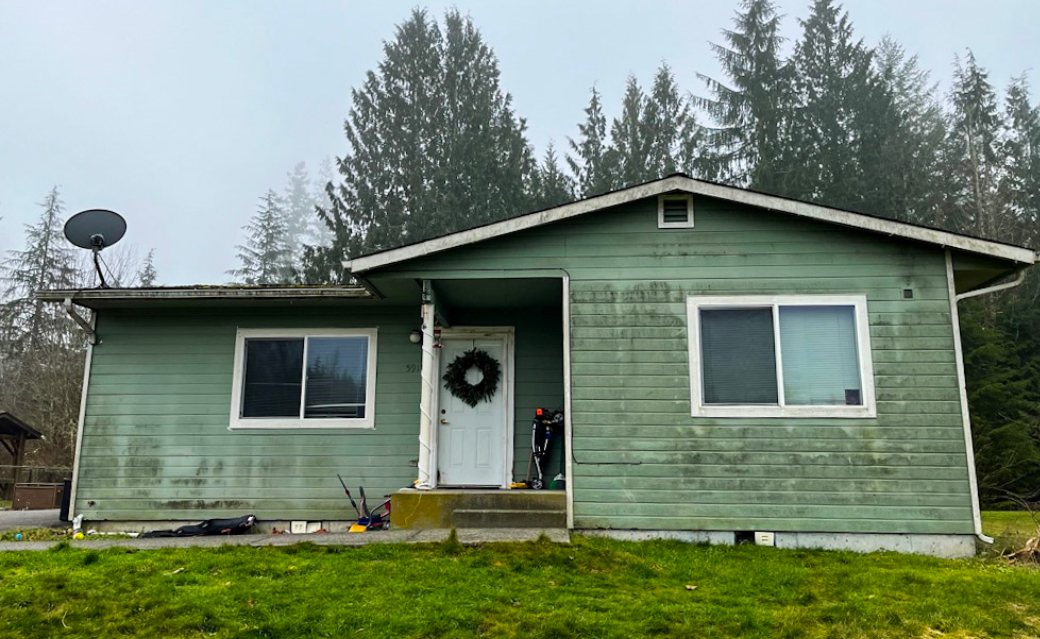
- Details
- By Gabe Galanda
Guest Opinion. Imagine watching the place you’ve called home for decades suddenly and forcibly stripped away by a system meant to protect your rights. For dozens of Indigenous people in Deming, Washington, this nightmare is their new reality—a human rights calamity so egregious that the United Nations and Seattle Times Editorial Board are calling for U.S. government intervention.
Yet, federal officials like Interior Secretary Deb Haaland and Senator Maria Cantwell (D-WA) are both playing political hot potato over Indigenous homes and livelihoods. And without immediate, necessary intervention from both officials, the situation is will soon become dire.
Last month, a tribal appellate court ruled against seven Indigenous households who have been threatened with eviction since 2016 after being disenrolled from the Nooksack Tribe. In the latest confounding twist reported by the Seattle Times: “An attorney served as a pro tem tribal court judge for the evictions order and later presided in the appeal of his own lower court ruling and upheld it.”
The Nooksack families impacted by this judicial misconduct are the first to face forced removal, but they are far from alone: over 60 Indigenous people spread across 20 households—including Tribal elders, wheelchair-bound relatives, and infants—now stand on the brink of losing their homes.
These homes, part of a federal Low Income Housing Tax Credit (LIHTC) program, do not just provide a roof over their heads. Since 1999, the families lived in and maintained their units, paid rent each month, and were promised eventual ownership after 15 years of good home buyership. By 2020, the homes should have been conveyed to them. That never happened.
Today, the Nooksack families face an ongoing, years-long nightmare of human rights calamity so appealing that the United Nations took the step to weigh in not once, but twice in a domestic Tribal matter. Specifically, the UN’s special rapporteurs for adequate housing and Indigenous rights called for the Biden Administration to “immediately halt” the evictions—with third party observers calling the step
“remarkable” and “unprecedented.”
It is why these families are turning to a last-second call for help to two individuals who can actually stop the evictions: Secretary Haaland and Senator Cantwell.
Through Secretary Haaland’s plenary authority over Indian affairs, lands, and housing under federal statute, she can halt the evictions today. Through critical oversight, Senator Cantwell, the former chair of the Senate Indian Affairs Committee and champion of the federal LIHTC program, can apply the pressure to initiate immediate action by the Biden administration.
Expedited action is necessary not just because of the acute, live-saving impact it would have for the Nooksack families, but because this example is a microcosm for a system failure in policy. The LIHT program, designed to uplift low-income individuals through eventual home ownership, is under audit. Of the 600-plus tribal housing units built through this initiative in Washington state, for example, not one has been conveyed to an Indigenous buyer. The very intention of Congress, to give low-income Indigenous people homeownership opportunities, has been undermined, and must be rectified.
Both officials can also take this moment to address a failure in bureaucracy. Earlier this year, in a desperate attempt to halt the evictions, the Washington State Housing Finance Commission (WSHFC) filed 85 Notices of Violation against the Nooksack Tribe with the IRS. But the IRS, citing a technicality, refuses to intervene once a project reaches its 15-year mark. Those 85 homes should have been conveyed by then, but instead, the system has locked them into a legal trap.
Only Secretary Haaland and Senator Cantwell have the keys. In June, the families wrote Secretary Haaland asking for help and a meeting—she did not respond. Likewise, in July, the families wrote Senator Cantwell asking for help and a meeting—but she has not yet met with them.
All of this is taking place as the threatened Nooksack households await armed police to remove them from their homes this fall. To them, this is not just an ordinary legal battle, but a haunting echo of the centuries-old pattern of the displacement of Indigenous people simply looking to exist in their homelands and to live safely and prosperously with the ones they love.
The time for action is now. Secretary Haaland must intercede, and Senator Cantwell must raise her voice to help make that happen. Both must help protect the Indigenous families living in fear of the next knock on their door. Without action, the United States will be complicit in yet further erasure of Indigenous people.
Gabe Galanda is an Indigenous rights attorney and the managing lawyer at Galanda Broadman. His practice focuses on complex, multi-party litigation and crisis management, representing Indigenous nations, businesses and citizens.
Help us defend tribal sovereignty.
At Native News Online, our mission is rooted in telling the stories that strengthen sovereignty and uplift Indigenous voices — not just at year’s end, but every single day.
Because of your generosity last year, we were able to keep our reporters on the ground in tribal communities, at national gatherings and in the halls of Congress — covering the issues that matter most to Indian Country: sovereignty, culture, education, health and economic opportunity.
That support sustained us through a tough year in 2025. Now, as we look to the year ahead, we need your help right now to ensure warrior journalism remains strong — reporting that defends tribal sovereignty, amplifies Native truth, and holds power accountable.
 The stakes couldn't be higher. Your support keeps Native voices heard, Native stories told and Native sovereignty defended.
The stakes couldn't be higher. Your support keeps Native voices heard, Native stories told and Native sovereignty defended.
Stand with Warrior Journalism today.
Levi Rickert (Potawatomi), Editor & Publisher

